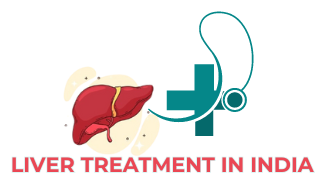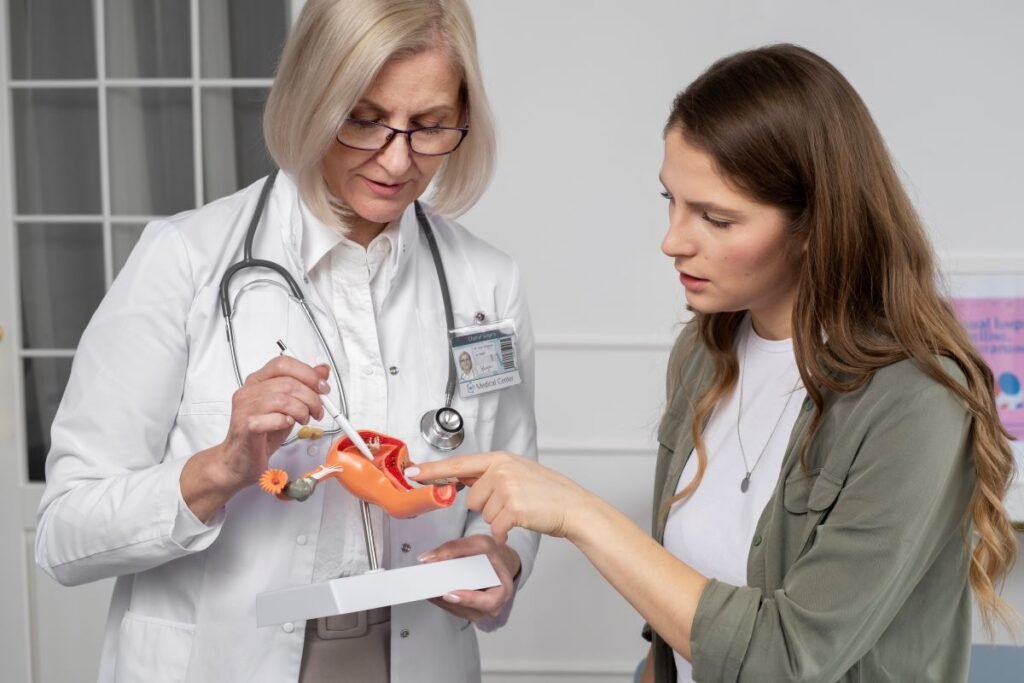What is Liver Biopsy
Liver biopsy procedure is usually performed to evaluate a disease such as cirrhosis or to detect infection, inflammation, or cancer cells. This involves the liver surgeons surgically removing a small amount of tissue from your liver so that it can be analyzed in a laboratory for signs of damage or disease.
Indications for Liver Biopsy
Many top rated liver transplant hospitals consider the liver biopsy procedure to be the gold standard for diagnosing liver diseases and lesions whose diagnosis cannot be determined by specific symptoms or laboratory tests. According to a liver expert doctor, the role of liver biopsy in diagnosis and treatment may be important in assessing the early or advanced stage of liver disease, including cirrhosis, liver cancer, hepatitis, or tuberculosis. However, before your liver biopsy is recommended, the top liver transplant surgeon in India may order blood or imaging tests to confirm liver diseases.
Confirmation and Staging of Liver Diseases
Based on typical liver symptoms, a liver biopsy procedure is often indicated to confirm the diagnosis and staging of liver diseases, providing your liver surgeons with valuable information for appropriate treatment planning and prognostic assessment.
Assessment of Liver Function and Treatment Planning
After a liver biopsy procedure, a liver expert doctor helps guide a treatment plan by assessing symptoms and identifying the extent of liver damage, determining the presence of fibrosis or inflammation, and evaluating response to treatment.
Preparing for a Liver Biopsy
The liver biopsy procedure is done as a diagnostic test by the liver surgeons at the liver transplant hospital. There are two ways in which a liver biopsy is commonly performed, and their complexity is comparable to a minor surgical procedure, including percutaneous or transjugular. At Dr L H Hiranandani Hospital, our experienced liver expert doctor performs both types of procedures. However, before undergoing a liver biopsy, certain preparations are necessary to ensure a safe and successful procedure.
Medical Evaluation
A thorough medical evaluation is necessary before the liver biopsy procedure to assess your overall health condition and identify any potential risks or contraindications for liver biopsy. This evaluation may include reviewing your medical history, performing a physical examination, and performing laboratory tests to evaluate liver function and clotting parameters at the best liver transplant center in India.
Informed Consent
The liver transplant hospitals need to obtain informed consent from the patient in preparation for the liver biopsy. For this, the patient’s guardian will be asked to sign a consent form that permit the liver surgeons to perform the procedure. Liver Hospital provides you with guidance on the purpose of the procedure, potential risks and complications, alternative options, and what to expect during and after the biopsy. However, before giving consent to the procedure, it is important to read the form carefully and if anything is not clear, ask questions to the liver expert doctor.
What to Expect During the Liver Biopsy Procedure
Understanding the liver biopsy procedure can help reduce anxiety and ensure you have a comfortable experience during the procedure. What you can expect during your liver biopsy will depend on the type of procedure your liver surgeons perform. That’s why it’s important that before your liver biopsy procedure, you meet with the liver treatment doctor to talk about what to expect during the biopsy. However, Dr L H Hiranandani Hospital issues some special guidelines in preparation for liver biopsy:
Preparation for Liver Biopsy
Talk to your liver expert doctor about any allergies and medical conditions you have medications, and supplements. Before the procedure, patients are usually instructed by the liver surgeons to fast and avoid taking certain medications. This also includes getting a guided physical exam or diagnosis or planning to go home after a liver biopsy.
Imaging Guidance (Optional)
In some cases, the liver expert doctor may use imaging guidance such as ultrasound or CT scan to precisely locate the biopsy site and avoid complications.
Positioning
During the procedure, the patient’s position depends on the equipment to expose the area of the liver targeted for biopsy. Patients are placed on their back or side or the patient is lying face down on a special bed, to avoid any unwanted possibilities.
Local Anesthesia
Anesthesia is usually not given in a liver biopsy procedure, but local anesthesia is given to numb the skin and tissues above the liver biopsy site, which reduces discomfort during the procedure.
Biopsy Needle Insertion
Once the area is numb, a biopsy needle is inserted through the skin into the liver to obtain a tissue sample.
Tissue Sample Collection
A biopsy needle is used to collect a small sample of liver tissue, which is then sent to the laboratory for analysis.
What to Expect After the Liver BiopsyProcedure
The liver biopsy procedure is usually performed by a liver hospital as an outpatient procedure but still requires monitoring for a few hours to ensure that there are no immediate complications.
Monitoring
Vital signs such as blood pressure and heart rate are regularly monitored to detect any signs of bleeding or other complications.
Recovery
Most patients can resume normal activities within a day or two after the biopsy, although vigorous activities may be restricted for a short period to reduce the risk of bleeding. It is important to follow post-biopsy instructions given by liver treatment doctor or liver hospital to ensure proper treatment.
Risks and Complications of Liver Biopsy
While the liver biopsy procedure is generally considered safe, it does carry some risks and potential complications. About whom you need to know.
Pain, Bleeding, and Infection at the Biopsy Site
The most common complications of liver biopsy are pain at the biopsy site, and other complications include bleeding and infection. Although these complications are usually mild and resolve on their own, patients may experience discomfort and bruising at the injection site.
Rare but Serious Complications
In rare cases, a liver biopsy can lead to more serious complications, such as internal bleeding, injury to nearby organs, or leakage of bile into the stomach. The liver hospital may often recommend blood transfusions and sometimes surgery or another procedure as a treatment to stop the bleeding.
Undergoing a liver biopsy involves preparation, a procedure, and post-procedure care. Despite the risks associated with it, the liver biopsy procedure is important for accurately diagnosing and staging liver diseases, guiding treatment decisions, and assessing treatment response. Top rated liver transplant hospitals prioritize patient safety, providing comprehensive care including thorough evaluation, precise procedures, and interpretation of liver biopsy results to ensure optimal outcomes for patients requiring liver biopsy.

